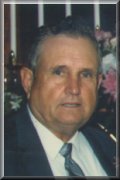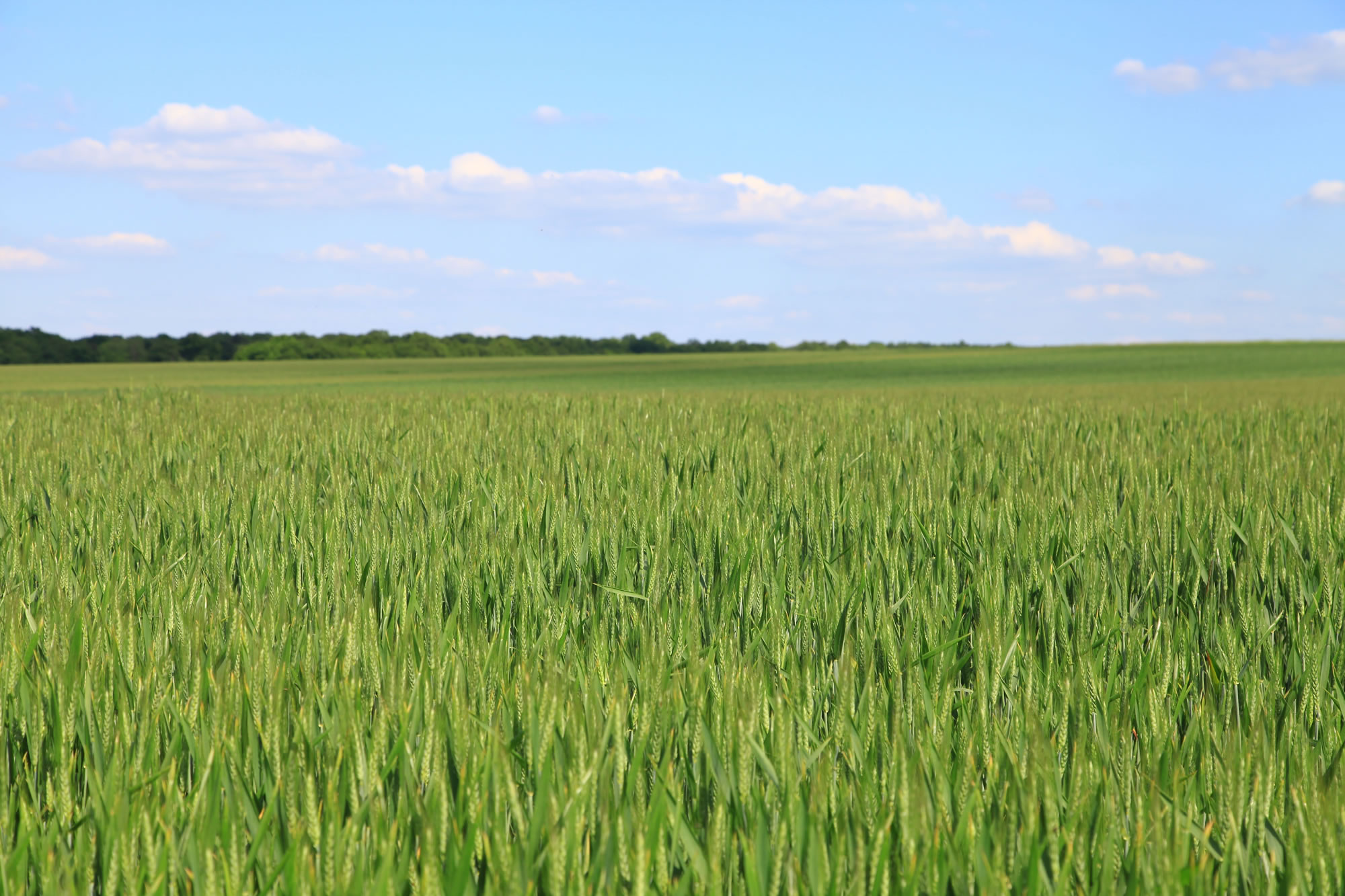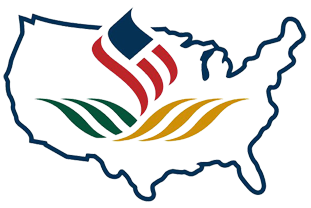The U.S. Custom Harvesters Hall of Fame
INDUCTEES OF USCHI HALL OF FAME
 Don Kniffen, Lorena, TX - (1999)
Don Kniffen, Lorena, TX - (1999)
USCHI Hall of Fame inductee is Don Kniffen of Lorena, Texas.
Don and his wife, Annilee, have been in the custom harvesting business for more than 55 years. He cut wheat from Seymour, Texas to North Dakota and Montana.
Don began harvesting in Seymour in May 1945 for Frank Studer, running a pull-type machine pulled by an Oliver 70 tractor. He was running with Homer Connell of Clyde, TX. Don once harvested with three Massey Harris 21 machines on a percentage basis for the MH dealer in Colby, KS.
Don told
the following story about his harvesting experiences:
From Seymour, I moved to Tulia, Texas and harvested
for John McCune and Red Miller. Both were very pleasant
to work for and their wives delighted us with home
cooked lunches. We parked our machines on the Spiller-Workman
M-Moline dealer lot. This was when we met Tulia's
giant called Tiny. He was about seven feet tall and
ran a machine shop along the Amarillo highway. One
story told about Tiny was an incident that happened
as Tiny was returning home from Amarillo one night
on icy roads. Tiny's car got to slipping and slid
into another car and dented their fender. The driver
got out with his flashlight to survey the damage and
was cursing and degrading Tiny for his carelessness,
until his flashlight happened to shine on Tiny's shoes.
Startled, he raised the flashlight to the full seven
feet height, not another work was said.
During World War II, parts were rare. In those days, when something broke you fixed it yourself or took it to a welding shop to be fixed. Since there were no parts stores or parts vans along the trail machine shops were frequented at each location. The war was going on and combines had priority over everything else. This was true not only in the welding shops, but even on the roads and at ports of entry. Everyone always gave priority to combiners in those days as they knew the importance of harvesting crops.
Remember Red Miller commenting about his neighbor, (Wylie Byrd, Roll-A-Cone Mfg.) that if he would quit remanufacturing his machinery and experimenting with odd equipment, he might amount to something. (Note: Roll-A-Cone is the largest employer in Swisher County and operates a very successful business.)
From Tulia we moved to Etter and cut a few sections of wheat and then headed onto Colby, KS. Between Guyman, OK and Liberal, KS a bridge was washed out and we had a long detour. This was especially trying for me since my truck driver had quit at Tulia and I was having to drive the tractor and pull the combine all the way to Colby. At Colby wheat was making way above average although some wheat had lodged. This made the Massey Harris machines with canvas tables very much in demand. We received $6.00 an acre at Colby, only $3.00 an acre up to Colby. Here we used Stony's Machine and Welding shop with Smitty doing the welding. He wasn't a giant like Tiny, but he was unique in that he never put his helmet on. He had a piece of broomstick attached to it, and held it with his left hand while he welded with his right hand. This shop was considered the best in the wheat belt back then.
From Colby we moved to the Sioux Indian Reservation in South Dakota, cutting for the Jacoby's in 45 bushel wheat, getting $10.00 an acre. It was there that I saw my first wheat fire set from lighting. It burned about half a section. While at Colby, we picked up the fourth Massey Harris -- a big 14 foot machine. The other three were 12 footers. We sold the drag machine at Hemmingford, NE.
This turned out to be what enticed me to become a custom harvester. I had just returned from the army, had a successful and exciting year going with the great "Harvest Brigade" traveling north. "Give me land, lots of land, don't fence me in!" Those huge, flowing wheat fields in Kansas and Colorado are inspiring to a combine man. The Dakotas' and Montana, when they have their Sunday clothes on, (good weather) are a beautiful sight, especially to a custom cutter. It puts man so close to God's creation, causing a chill to run down his spine. As one old harvest song says, "It takes a special kind of man to be a combine man. He's got to love the soil and want to see the land." The movie, "The Wild Harvest," was filmed in 1947-48 about custom cutting, staring Allen Ladd and Dorothy Lamar.
Since 1945, Don has cut in every state north of Texas and he has owned every brand of machine that they have manufactured. What made these years so good were his faithful customers. At Tulia he cut for Felix Mote and then his son Joe Wood Mote from 1947-1985. Then in the fall, I leased my machines to all the Mote's and Bill Jennings, (Herb Jenning's dad) and others for their Milo harvest.
At Texoma, OK he cut for George McDaniel from 1951 until he retired in 1995. In Colby, KS he cut for Jess and Willis B. Evans for 19 years. Jess was a cashier at Thomas County National Bank. Throughout the years he enjoyed meals at Murphy's Cafe. In the "glory" years we harvested for Walter Hauman, who was said to be the second largest land owner in North Dakota. At Beach, ND they told us Hobo labor built the streets. When a Hobo came into town they would put him in jail giving him a bed and his meals, but he had to work every day on the streets. In Scoby, MT we harvested for Ben and Leonard Danielson. Their grandfather had helped establish the county, for whom they named it.
At the beginning of my harvest experience, N.R. Hamm, from Perry, KS was the largest operator, with 14 Massey Harris machines. Then Carl Rieger came along. I met him at Colby when he had 16 Case machine.
There have been good years and lean years. It was especially dry from 1951 through 1956. The drought finally reached from San Angelo, TX to north of Colby, KS. Nevertheless, with perseverance a custom cutter can come through all right. I have owned six machines, but now have only one. I now harvest only in the Waco area and the South Plains. This year I hope to make the 1999 harvest in Texas which will make 55 years for me and 46 years for my wife Annilee. "Oh, the harvest memories!"
Don truly believes that harvesters, "Harvest the Grain That Feed the World."




